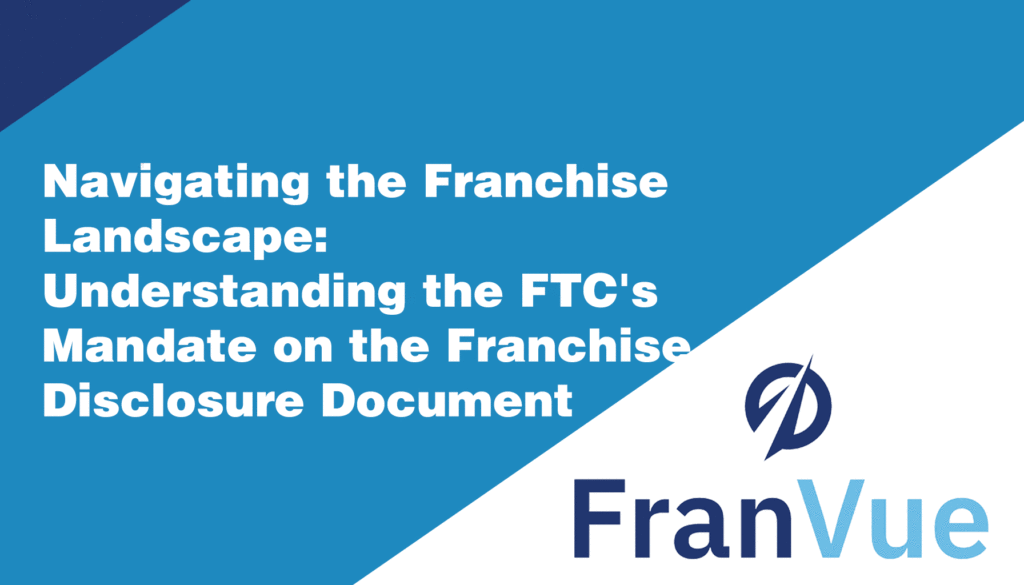In the realm of franchising, making well-informed decisions is crucial. One key element that aids prospective franchisees in this process is the Franchise Disclosure Document (FDD). As a FranVue certified franchise consultant, I’ve seen how the Federal Trade Commission’s (FTC) regulations on the FDD play a pivotal role in shaping a transparent, fair, and ethical franchising environment. Let’s delve deeper into how the FTC mandates the FDD, ensuring you have the knowledge and understanding needed to make the most of your franchise opportunity.
The FTC's Franchise Rule: A Pillar of Transparency
The FTC’s Franchise Rule is a cornerstone regulation in the franchising industry. It mandates that franchisors provide the FDD to prospective franchisees at least 14 days before any binding contract is signed or any payment is made. This rule is designed with a clear purpose: to ensure that potential franchisees have ample time to review and fully understand all aspects of the franchise they are considering.
Why the 14-Day Review Period Matters
The 14-day review period mandated by the FTC is not arbitrary. It recognizes the complexity and the significance of the decision to invest in a franchise. This period allows prospective franchisees to:
- Thoroughly Review the FDD: Franchise Disclosure Documents can be lengthy and complex, containing a wealth of critical information. The 14-day period gives you the time needed to digest this information thoroughly.
- Seek Expert Advice: This window allows you to consult with professionals such as certified franchise consultants, lawyers, and financial advisors, who can offer valuable insights and interpretations of the FDD’s contents.
- Conduct Due Diligence: You can use this time to research the franchisor, speak with existing franchisees, and assess the overall feasibility of the franchise opportunity.
Ensuring Honesty and Clarity
The FTC’s oversight through the Franchise Rule ensures that franchisors maintain honesty and clarity in their disclosures. This transparency is vital in fostering a fair franchising environment. The FDD must accurately represent all aspects of the franchise opportunity, including:
- The franchisor’s history and business experience.
- Initial and ongoing costs associated with the franchise.
- Legal obligations and the terms of the franchise agreement.
- Past and current litigation involving the franchisor.
- Financial performance representations, if provided.
The Role of Certified Franchise Consultants
In navigating the complexities of the FDD, the guidance of a FranVue certified franchise consultant is invaluable. A consultant can help you understand the nuances of the FDD, provide insights into the franchisor’s business model, and guide you in evaluating the overall potential of the franchise opportunity. Their expertise ensures that you are not just relying on the franchisor’s disclosures but are also getting an expert, unbiased perspective.
Conclusion
The FTC’s mandate on the Franchise Disclosure Document is a critical aspect of the franchising world, designed to protect and empower potential franchisees. By ensuring you have sufficient time and information to make an informed decision, the FTC fosters a healthier, more transparent franchising environment. As you consider your next franchise opportunity, remember the importance of this mandated review period and consider engaging a certified franchise consultant to guide you through this vital process. Your journey into franchising should be based on a foundation of knowledge and understanding, and the FTC’s regulations on the FDD are there to ensure just that.


